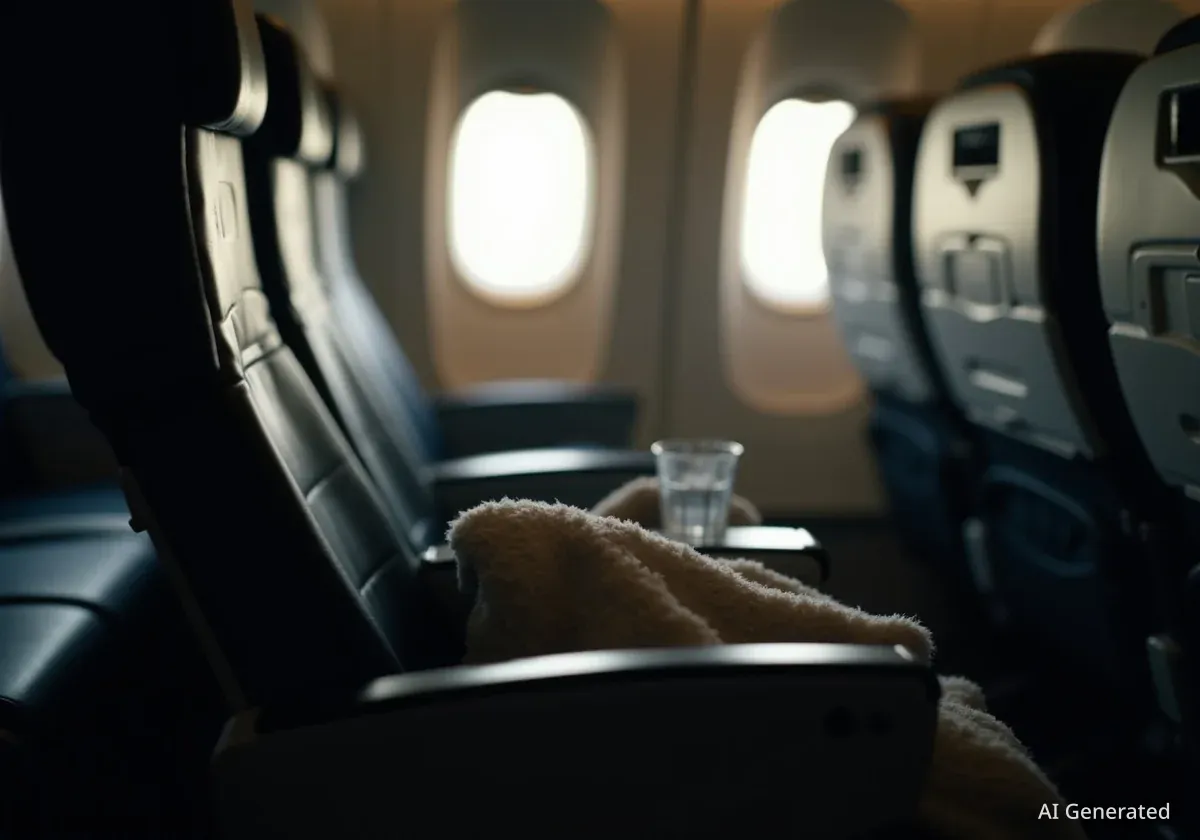A federal jury has ordered American Airlines to pay $11 million to a passenger who suffered two strokes during a transatlantic flight in 2021. The 67-year-old chef, Jesus Plasencia, was flying from Miami to Madrid when the medical emergencies occurred. The flight was not diverted, and medical care was significantly delayed, leading to severe, permanent health consequences for Plasencia.
Key Takeaways
- A federal jury awarded $11 million to a passenger who suffered two strokes on an American Airlines flight.
- The flight from Miami to Madrid in November 2021 was not diverted despite the passenger's medical distress.
- The passenger, Jesus Plasencia, now requires constant care and cannot speak or write.
- Jurors found American Airlines negligent under the Montreal Convention.
- The award was reduced by 27.5% due to partial responsibility assigned to the couple.
Incident Details on American Airlines Flight
The incident began in November 2021. Jesus Plasencia and his wife were preparing for a flight from Miami to Madrid. While the aircraft was still at the gate, Mr. Plasencia experienced what was later described as a "mini-stroke."
According to reports from the Los Angeles Times, he temporarily lost the ability to speak. Despite this clear medical event, the cabin crew did not contact medical personnel. Instead, the pilot cleared the flight for takeoff.
Second Stroke Occurs Mid-Flight
During the flight, Mr. Plasencia suffered a second, more severe stroke. This time, the cabin crew did not inform the pilot of the passenger's worsening condition. The lack of communication meant that no immediate action was taken to divert the flight or seek urgent medical assistance.
This delay in care became a central point in the subsequent legal proceedings. The flight continued its journey to Madrid without any medical intervention for Mr. Plasencia.
Important Fact
The passenger experienced a "mini-stroke" while the plane was still at the gate, but the crew did not contact medical personnel.
Delayed Medical Attention and Health Consequences
Upon arrival in Madrid, Mr. Plasencia was hospitalized immediately. He was in critical condition and remained in the hospital for over three weeks. The extended delay in receiving medical attention had severe and lasting effects on his health.
Today, Mr. Plasencia is unable to speak or write. He requires continuous, around-the-clock in-home care. His lawyers argued in court that these permanent disabilities could have been less severe if medical care had not been delayed by eight hours.
"A better medical outcome could've been possible if care hadn't been delayed by eight hours," the couple's lawyers stated during the trial, emphasizing the critical impact of the airline's actions.
Background on Airline Protocols
Airlines have protocols for handling medical emergencies onboard. These often include contacting ground medical support, diverting the flight to the nearest suitable airport, or utilizing onboard medical kits. The decision to divert typically rests with the pilot, often in consultation with medical professionals on the ground.
Jury Finds American Airlines Negligent
A federal jury determined that American Airlines was negligent. This finding was made under the Montreal Convention, an international treaty established in 1999. This convention sets out rules for airline liability in international air transport.
Specifically, Article 17, Paragraph 1 of the Montreal Convention states: "The carrier is liable for damage sustained in case of death or bodily injury of a passenger upon condition only that the accident which caused the death or injury took place on board the aircraft or in the course of any of the operations of embarking or disembarking."
Damage Award and Reduction
The jury initially awarded the couple $13.28 million in damages. However, this amount was reduced. According to Business Insider, the final award was lowered by 27.5% because the jury assigned partial responsibility to Mr. Plasencia and his wife. With added interest, American Airlines was ordered to pay a total of $11 million.
The case highlights the serious responsibility airlines have for passenger well-being during flights, especially in medical emergencies. Delays in responding to health crises can have significant and lasting repercussions for individuals.
- The Montreal Convention dictates airline liability for passenger injury or death during flight.
- The jury found American Airlines was negligent in its handling of the medical emergency.
- The initial award was $13.28 million, later reduced due to shared responsibility.
Comparison to Other Incidents
This case stands in contrast to other situations where flights have been diverted for less critical reasons. For example, a United Airlines flight in 2023 made an emergency landing because a business class passenger was upset about not getting his preferred meal choice. Such incidents underscore the varying responses to onboard situations.
The outcome of this lawsuit serves as a reminder of the importance of prompt and appropriate responses to passenger medical emergencies. Airlines must ensure their crews are trained and equipped to handle such events effectively to prevent severe consequences for passengers.
The legal decision emphasizes the duty of care that carriers owe to their passengers, especially when health issues arise. This ruling may influence how airlines approach medical incidents on future flights.





